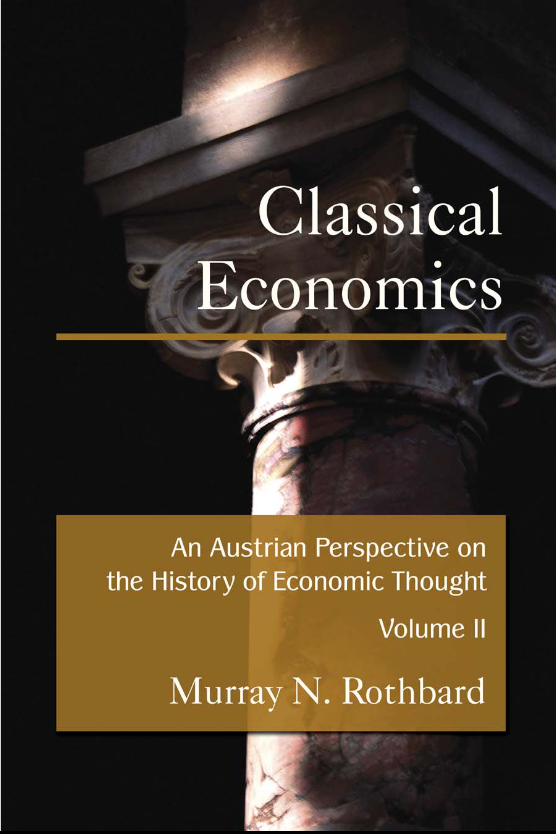Newly released
This book is new and will be uploaded as soon as it becomes available to us and if we secure the necessary publishing rights.

Classical Economics: An Austrian Perspective on the History of Economic Thought Volume 2 Book PDF
(0)
Author:
Murray RothbardNumber Of Reads:
70
Language:
English
Category:
Social sciencesSection:
Pages:
546
Quality:
excellent
Views:
1176
Quate
Review
Save
Share
Book Description
As the first comprehensive treatment of Classical economics from a modern Austrian perspective, this important history of nineteenth century economic thought discusses the key members of each school and reassesses their work.
Professor Rothbard's approach offers new perspectives on both Ricardo and Say and their followers. The author suggests that Ricardianism declined after 1820 and was only revived with the work of John Stuart Mill. The book also resurrects the important Anglo-Irish school of thought at Trinity College, Dublin under Archbishop Richard Whately. Later chapters focus on the roots of Karl Marx and the nature of his doctrines, and laissez-faire thought in France including the work of Frederic Bastiat. Also included is a comprehensive treatment of the bullionist versus anti-bullionist and the Currency versus banking School controversies in the first half of the nineteenth century, and their influence outside Great Britain.
Tracing economic thought from Smith to Marx, this book is notable for its inclusion of all the important figures in each school of thought and for assessing their theories in religious, political, philosophical and historical context. Economic Thought before Adam Smith, the first volume of Professor Rothbard's history of economic thought from an Austrian perspective, is also available.
Murray Rothbard
Murray Newton Rothbard was an influential American historian, natural law theorist and economist of the Austrian School who helped define modern libertarianism. Rothbard took the Austrian School's emphasis on spontaneous order and condemnation of central planning to an individualist anarchist conclusion, which he termed "anarcho-capitalism".
Book Currently Unavailable
This book is currently unavailable for publication. We obtained it under a Creative Commons license, but the author or publisher has not granted permission to publish it.
Rate Now
5 Stars
4 Stars
3 Stars
2 Stars
1 Stars
Classical Economics: An Austrian Perspective on the History of Economic Thought Volume 2 Quotes
Top Rated
Latest
Quate
Be the first to leave a quote and earn 10 points
instead of 3
Comments
Be the first to leave a comment and earn 5 points
instead of 3